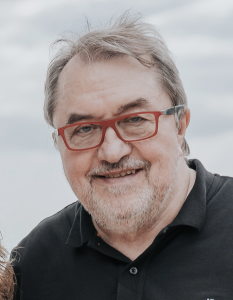Macron has broken from tradition in a number of ways, implementing neoliberal economic policy and promoting a strident French militarism.
Columnist Ted Rall argues President Emmanuel Macron’s delusions of fighting Russia in the Donbass are not shared by most French people.
“Ever since its ignominious defeat in the Napoleonic wars, France is entrapped in the predicament of countries that get sandwiched between great powers,” began a provocative article recently published on the Indian Punchline blog. As other European countries have accepted the United States as the great power of the Western world, France has never fully given up its global aspirations, argues M.K. Bhadrakumar.
And what better leader to carry the torch than one who once confided France needs a king and sometimes, according to his critics, appears to see himself as one?
Columnist and political cartoonist Ted Rall joined Sputnik’s The Critical Hour program on Monday to discuss the case of Emmanuel Macron, his comments about the war in the Donbass, and whether the French president’s megalomania borders on the pathological.
“One of the things I used to say during the early days of the war on terror was that the United States should follow the example of France,’ said Rall. “Which back in the 2000s seemed to have accepted its fate as a post-colonial, post-imperialistic power, albeit still an important country in Europe.”
“France, at the time, seemed like it had… accepted that colonialism was a bad idea and that they needed to redirect their resources away from militarism and more toward their own people,” he continued. “Maybe he didn’t read his history. Maybe he’s too young to remember that glorious period when France, finally in the 80s and 90s, was able to start establishing a major social safety net that created free college and socialized health care and everything else for its people. But he seems to have forgotten all that and he’s trying to go backwards.”
As much of the Western world moved towards neoliberalism in the 80s with leaders like US President Ronald Regan and British Prime Minister Margaret Thatcher, France went in the opposite direction, elevating Socialist Francois Mitterrand to power. The French leader left a lasting legacy in the country, investing in infrastructure, social programs and grand construction projects. His focus on domestic concerns was largely shared in the 2000s by President Jacques Chirac, who rejected French support for the war in Iraq.
Macron has broken from tradition in a number of ways, implementing neoliberal economic policy and promoting a strident French militarism. Fortunately, according to Rall, his ambitions aren’t shared by most of the French public.
“The good news is, I don’t think that the French people – whether we’re talking about the populist right, Marine Le Pen’s party, or you’re talking about the radical left represented by Jean-Luc Melenchon, or – not much of anyone else is in the mood to follow him down this path to destruction,” said the columnist. “And, for that matter, he doesn’t really even seem to have much cooperation from other European powers in terms of direct involvement to go and fight in Ukraine, to fight the Russians in Ukraine.”
Rall insisted most French people are more worried about domestic concerns such as the economy, unemployment, and demographic issues rather than the conflict in the Donbass. And the last time the French military was directly involved in a major proxy war was in the 1960s, he noted.
Additionally, Rall claimed many French people are sympathetic to Russia’s position.
“Russia is not a distant country to them,” he claimed. “There are lots and lots of French people who are descended, who are related to Russians. There was a huge white Russian migration after the Russian Revolution to France and very close ties between Russia and France that go back to the Tsarist era.”
“I just think they get it and they don’t want to get involved in something that’s so brazenly provocative,” Rall concluded.
Learn About The Nuclear Bloodbath MSM Won’t Warn You About



